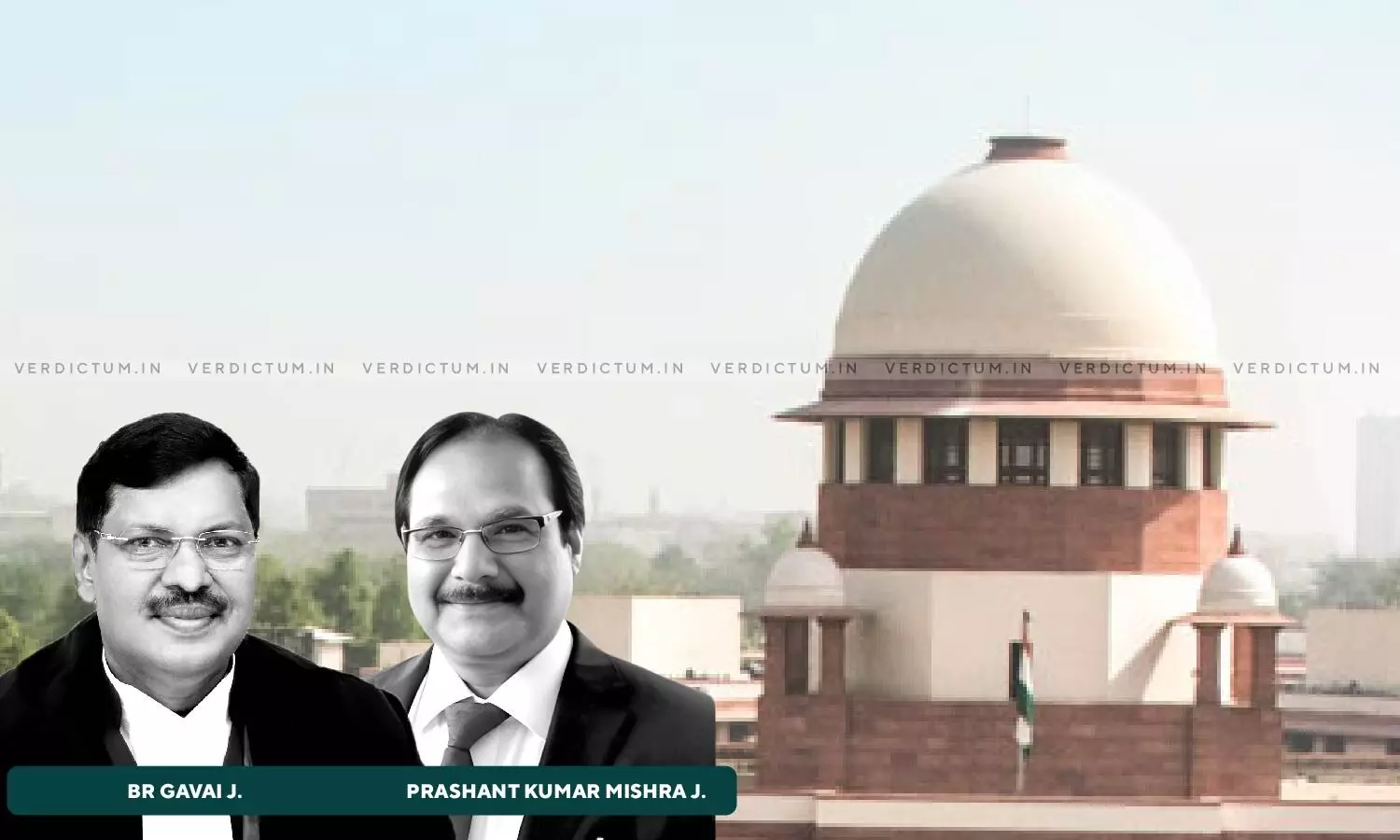
18 Months’ D.El.Ed. Diploma (ODL) Course In Elementary Education Conducted By NIOS Is Not Equal To 2 Years’ Regular Diploma: SC
 |
|The Supreme Court held that the 18 months of Diploma Course conducted by the National Institute of Open Schooling (NIOS) through Open and Distance Learning (ODL) mode in elementary education (‘D.El.Ed.’) is not equivalent to the 2 years of regular Diploma.
The Court held thus in a batch of appeals preferred against the judgment of the Uttarakhand High Court by which it was held that the 18 months’ D.El.Ed. through ODL mode by NIOS is a valid Diploma for applying against the regular posts of Assistant Teachers (Primary).
The two-Judge Bench comprising Justice B.R. Gavai and Justice Prashant Kumar Mishra observed, “In view of what has been held by this Court hereinabove, we find that the High Court erred in holding that 18 months Diploma conducted by NIOS through ODL mode is equivalent to the 2 years regular Diploma, particularly so, when there was no material placed on record to even remotely hold that such a qualification was recommended by the Expert Body NCTE On the contrary, the communication dated 6th September 2019 of NCTE, the directives of MHRD so also the recognition order dated 22nd September 2017 clearly go on to show that the 18 months Diploma was provided as a one time window to the in-service teachers to acquire the minimum qualifications between the 2017 Amendment Act and the outer limit of 1st April 2019.”
The Bench added that the High Court totally erred in holding that the 2 years Diploma is equivalent to 18 months Diploma.
Senior Advocates U.K. Uniyal, Meenakshi Arora, V.K. Shulka, and Salman Khurshid appeared for the appellants/candidates while Deputy Advocate General Jatinder Kumar Sethi appeared for the State/respondent. Advocate Sameer Sodhi appeared for the intervenors and Advocate Manisha T. Karia appeared for the NCTE.
Facts of the Case -
The appellants were the candidates holding the 2 years diploma in elementary education. In the year 2010, the National Council for Teacher Education (NCTE) had prescribed the minimum qualifications for a person to be eligible for appointment as a teacher for Class I to VIII. In 2012, the Uttarakhand Government promulgated the Uttarakhand Government Elementary Education (Teacher) Service Rules 2012 prescribing minimum eligibility criteria for appointment to the post of Assistant Teachers in Government Elementary Schools in the State. In 2014, NCTE notified National Council for Teacher Education (Determination of Minimum Qualifications for Persons to be Recruited as Education Teachers and Physical Education Teachers in Pre-Primary, Primary, Upper Primary, Secondary, Senior Secondary or Intermediate Schools or Colleges) Regulations 2014. The said 2014 Regulations were in supersession of all earlier Regulations.
Thereafter, the Department of Higher Education (MHRD) issued a letter to all the Secretaries of States and Union Territories directing that all the teachers in Government Schools must possess minimum qualifications as mandated under the Right to Education Act, 2009 and a last chance was given to all teachers to acquire the same till March 31, 2019. Subsequently, NCTE issued a recognition order, thereby conduction D.El.Ed programme through ODL mode by NIOS which reduced the duration of diploma from 2 years to 18 months. The High Court held that, in respect of the in-service teachers, who have undergone the 18 months D.El.Ed. programme conducted by NIOS through ODL mode, the State Government cannot discriminate by debarring them from offering their candidatures for the post of Assistant Teachers (Primary) in the State of Uttarakhand.
The Supreme Court after hearing the contentions of the counsel noted, “It can thus be seen that it is a trite law that the Government cannot amend or supersede statutory rules by administrative instructions, but if the rules are silent on any particular point, it can fill up the gaps and supplement the rules and issue instructions not inconsistent with the rules already framed. It is a settled proposition of law that an authority cannot issue orders/office memorandum/executive instructions in contravention of the statutory rules. However, instructions can be issued only to supplement the statutory rules but not to supplant it.”
The question that arose before the Court was whether the State is prohibited from prescribing the minimum qualifications which is higher than that. In this regard, the Court said that the High Court erred in directing the State Government to consider the candidates who did not qualify as per the 2012 Service Rules.
“The High Court, in our view, could not have issued such a mandamus contrary to such Service Rules. … That leaves us with the question as to whether the High Court was justified in holding that the 18 months Diploma conducted by NIOS through ODL mode is said to be equivalent to the 2 years Diploma as required under the notifications of NCTE dated 23rd August 2010 and 29th July 2011”, further said the Court.
The Court also observed that there can be no doubt that NCTE, as an expert body, has a right to prescribe the minimum qualifications and in the present case itself, by notifications, NCTE has done so. It added that the recognition order only provides a window for in-service teachers to complete their course prior to April 1, 2019.
Accordingly, the Apex Court allowed the appeals and set aside the judgment of the High Court.
Cause Title- Jaiveer Singh and Others v. The State of Uttarakhand and Others (Neutral Citation: 2023 INSC 1024)